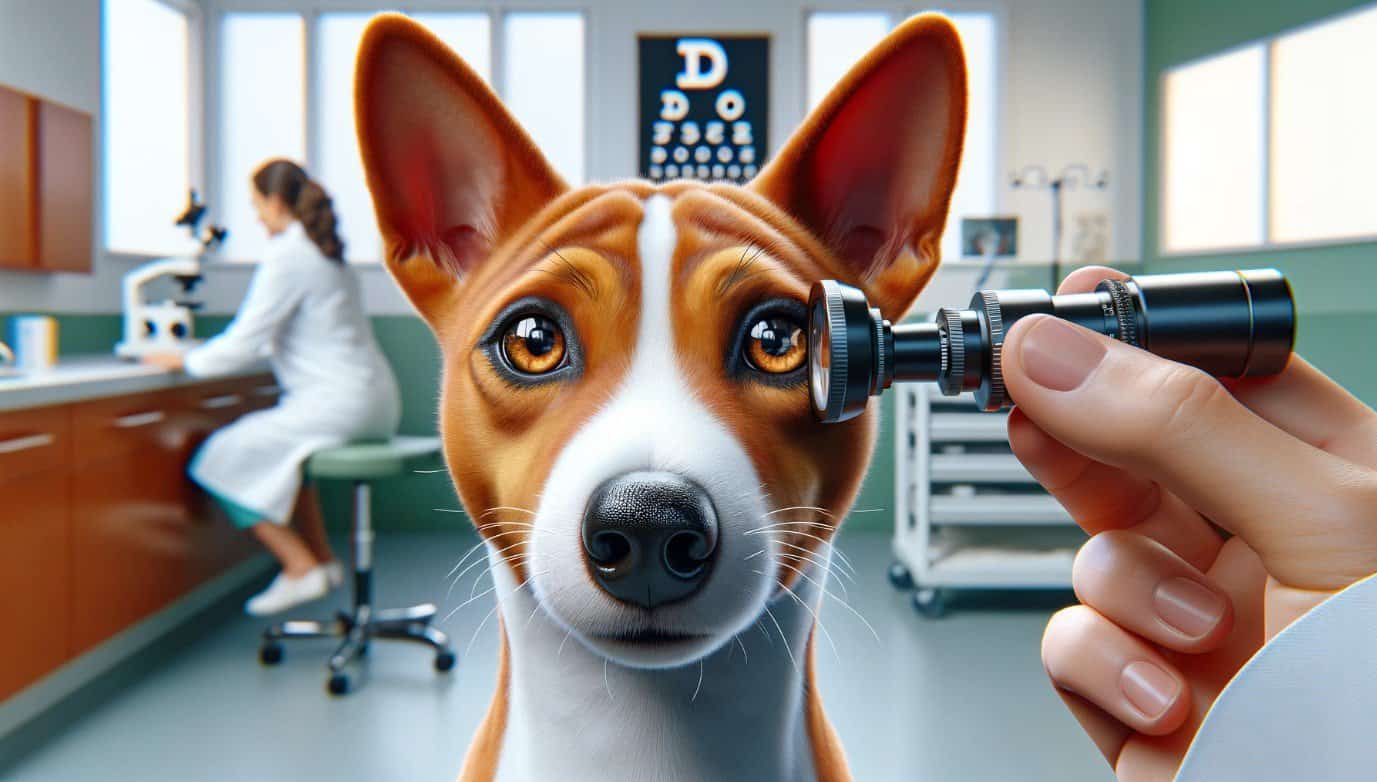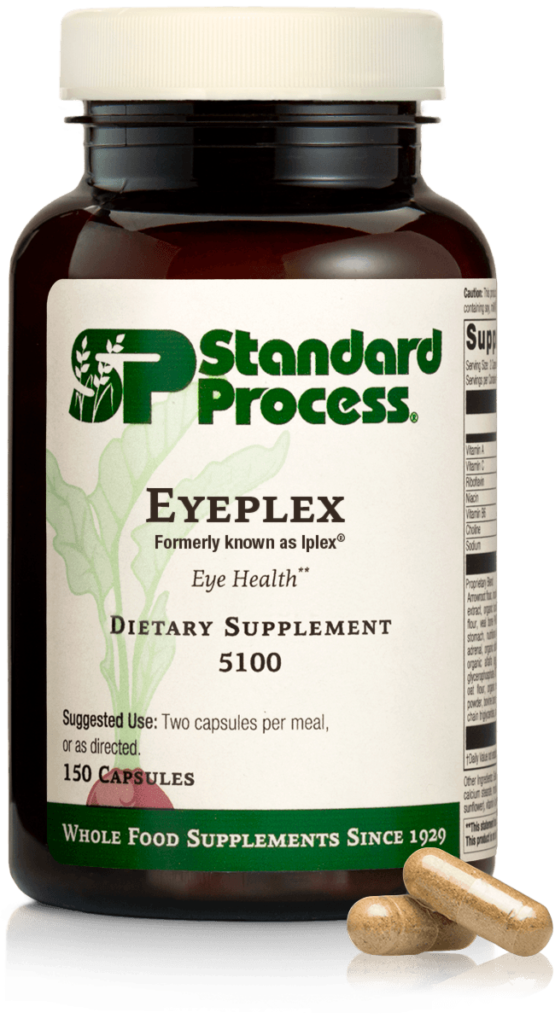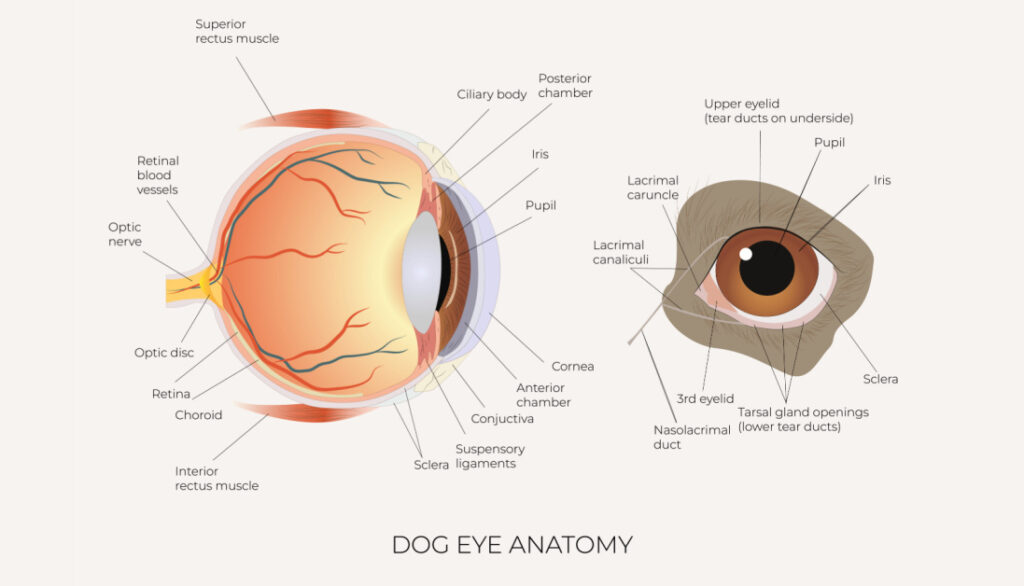As a holistic veterinarian and a dog parent myself, I understand the concerns you might have about your Basenji’s eye health. Our beloved Basenjis are known for their expressive eyes, which unfortunately, are also prone to certain breed-specific eye conditions. Basenji Eye Health is a topic that demands our attention.
From common issues like Progressive Retinal Atrophy (PRA) to rare conditions like Coloboma, Basenjis can face a variety of eye problems. But don’t worry, as a vet, I’m here to guide you through understanding these conditions, their prevention, and treatment. We’ll explore the unique structure of a Basenji’s eyes, common Basenji Eye Diseases, and the role of a holistic diet and environmental hygiene in preventing these problems.
Moreover, we’ll also discuss the importance of regular eye care and maintenance for your Basenji. From daily cleaning to monitoring hair and nail length, every little detail matters when it comes to your Basenji’s eye health. So, let’s dive right into understanding how we can ensure our Basenjis have the best possible eye care and lead a healthy, happy life!
Remember, the key to preventing and managing Basenji Eye Problems is early detection and timely treatment. So, let’s get started on this journey towards better eye health for your Basenji!

Understanding Breed Specific Eye Structure
If you’re a proud parent of a Basenji, you’re no stranger to their expressive, almond-shaped eyes that seem to hold a world of wisdom. But have you ever wondered what lies beneath those mesmerizing eyes? Well, understanding the Basenji’s unique eye structure is crucial in effectively maintaining their eye health and preventing diseases.
The Basenji’s unique eyes are small, almond-shaped, are set well into the skull, and are obliquely placed, giving them their characteristic squint. This squint, however, is not indicative of any health issue but a breed-specific trait.
The Basenji’s eye structure is quite similar to other breeds. It comprises the cornea, the clear outer layer of the eye, the iris, which controls the amount of light entering the eye, and the lens that focuses the light onto the retina. The retina, located at the back of the eye, contains photoreceptor cells that convert light into electrical signals, which are then sent to the brain.
However, what sets the Basenji’s eyes apart is their predisposition to certain genetic eye conditions. This breed is prone to Progressive Retinal Atrophy (PRA), a group of genetic diseases that cause the retina’s gradual deterioration, leading to blindness. Additionally, they can also develop Coloboma, an eye abnormality that occurs when a part of the structure of the eye does not develop fully.
Being aware of these breed-specific eye structures and predispositions can help you as a Basenji parent to anticipate potential eye health issues. It also enables you to take preventive measures and seek early treatment, if necessary, to ensure your furry friend’s eyes stay as bright and expressive as ever.
Common Eye Issues In Basenji
As a seasoned veterinarian, I’ve had the chance to experience firsthand the unique health challenges our Basenji friends often face, especially when it comes to their eyes. Basenji Eye Health is a critical aspect of their overall well-being and taking care of it is paramount. Let’s delve into some of the common eye problems these dogs are prone to.
- Progressive Retinal Atrophy (PRA): This is a group of genetic diseases that cause the retina of the eyes to deteriorate over time. This can lead to night blindness and eventually total blindness. It’s a common condition in Basenjis and can be detected through genetic testing.
- Colobomas: These are defects in the normal structure of the eye, which can affect any part of the eye. They are generally present at birth and can cause vision impairment. Basenjis are predisposed to colobomas, particularly those affecting the iris.
- Cataracts: These are opacities in the lens of the eye, leading to blurred vision. While they can occur in any breed, Basenjis are particularly susceptible, especially as they age.
- Corneal Dystrophy: This is a condition where the cornea becomes cloudy due to the accumulation of abnormal material. It can cause vision loss and discomfort. Basenjis are one of the breeds often affected by this condition.
- Persistent Pupillary Membranes (PPM): These are remnants of a fetal membrane that should normally disappear shortly after birth. In some Basenjis, they persist and can interfere with vision.
Understanding these conditions is the first step in ensuring optimal Basenji Eye Health. Though some of these conditions are genetic and cannot be completely prevented, early detection and treatment can greatly improve your Basenji’s quality of life. It’s important to have regular vet check-ups and to keep an eye out for any changes in your dog’s vision or behavior. Remember, our furry friends cannot express their discomfort in words, so it’s up to us to be vigilant.

Prevention of Eye Problems
Ensuring your Basenji gets the right nutrients for optimal eye health is essential for maintaining clear vision and preventing age-related issues. Natural, nutrient-rich foods and supplements can play a key role in supporting their eyesight. From vitamin A-packed freeze-dried liver treats to antioxidant-rich blueberries and targeted supplements like Eyeplex by Standard Process, there are several ways to nourish your dog’s eyes. In this section, we’ll explore how these powerful ingredients contribute to long-term vision health and overall well-being.
Eyeplex by Standard Process
Eyeplex by Standard Process is a specialized supplement designed to support your Basenji’s eye health with a blend of essential nutrients. Formulated with key vitamins, minerals, and antioxidants, Eyeplex helps protect against oxidative stress, supports retinal function, and promotes overall vision health. Ingredients like vitamin A, vitamin C, and zinc contribute to maintaining strong eyesight, while whole food ingredients provide additional phytonutrients for cellular protection. Adding Eyeplex to your Basenji’s diet can be especially beneficial for aging dogs or breeds prone to eye conditions, offering targeted nutritional support to keep their vision sharp and healthy for years to come.

Freeze-Dried Blueberries
Freeze-dried blueberries are a powerhouse of antioxidants that can help protect your Basenji’s eyes from oxidative stress and age-related damage. Rich in vitamins C and E, as well as anthocyanins, these tiny but mighty berries help combat free radicals that can contribute to eye diseases like cataracts and macular degeneration. Incorporating freeze-dried blueberries into your dog’s diet provides a natural and delicious way to support retinal health, reduce inflammation, and promote overall vision longevity. Plus, they’re a low-calorie, dog-friendly treat that makes a great addition to a balanced diet for long-term eye health.

Freeze-Dried Liver
Freeze-dried liver treats are an excellent natural source of vitamin A, an essential nutrient for your Basenji’s eye health. Vitamin A plays a crucial role in maintaining good vision, especially in low-light conditions, while also supporting overall immune function and skin health. Since liver is rich in bioavailable vitamin A, incorporating freeze-dried liver treats into your dog’s diet provides a convenient and nutritious way to promote optimal eye function. Just be sure to feed them in moderation, as excessive vitamin A can lead to toxicity. Adding these nutrient-packed treats to your pup’s routine is a simple, tasty way to support their long-term vision and well-being!

By prioritizing your Basenji’s eye health through a balanced diet and nutritional supplements, you can help prevent many common eye issues. These simple steps can go a long way in ensuring your pup’s eyes stay healthy and clear for years to come.
Remember, maintaining your Basenji eye health is not solely about treating problems as they arise, but also about taking preventative measures. By feeding your Basenji a healthy diet and adding beneficial supplements, you can help prevent many common eye issues and ensure your furry friend’s eyes stay healthy for years to come.
Environmental Hygiene To Reduce Eye Problems
Environmental hygiene plays a significant role in maintaining Basenji eye health. It’s crucial to understand that our furry friends’ eyes are just as sensitive to environmental factors as ours. Therefore, ensuring a clean, safe, and hygienic environment is key to preventing eye problems in your Basenji.
Indoor Air Quality
Indoor air quality can directly impact your Basenji’s eye health. Dust, smoke, and other airborne particles can irritate their eyes, leading to conditions such as conjunctivitis or dry eye. To maintain good indoor air quality:
- Regularly clean and vacuum your home to reduce dust and dander.
- Avoid smoking indoors as tobacco smoke can irritate your dog’s eyes.
- Consider using an air purifier to filter out potential irritants.
Remember, your Basenji’s eyes are closer to the ground, making them more susceptible to irritants that settle on the floor or carpet.
Sprays, Diffusers, Candles, Incense
While we may enjoy the scent of air fresheners, candles, and incense, these can be harmful to your Basenji’s eyes. Chemicals and artificial fragrances can cause eye irritation, leading to redness, watering, and discomfort. Here’s what you can do:
- Avoid using air fresheners and sprays around your dog, especially in enclosed spaces.
- If you use candles or incense, ensure the room is well-ventilated and keep them out of your dog’s reach.
- Consider using pet-friendly alternatives like essential oil diffusers. However, always consult your vet before introducing any new substances into your pet’s environment.
By maintaining good environmental hygiene, you can significantly reduce the risk of eye problems in your Basenji. However, remember that regular check-ups with the vet are also essential in ensuring your dog’s overall eye health. They can spot potential issues early on and provide the necessary treatment to prevent further complications.
Remember, your Basenji’s eyes are a window to their health. By taking simple measures to maintain a clean, safe environment, you can help ensure their eyes remain bright and healthy for years to come.

Routine Basenji Eye Care & Maintenance
Keeping your Basenji’s eyes healthy is a daily task that requires diligence and knowledge. Let’s explore some daily and weekly care and maintenance tips that can help keep your Basenji’s eyes in optimal health.
Daily & Weekly Care & Maintenance
Regularly inspect your Basenji’s eyes to ensure they’re clean and free from any abnormalities. A healthy Basenji eye should be bright and clear with no signs of redness, swelling, or discharge. Here are some daily and weekly maintenance steps:
- Eye Cleaning: Use a clean, damp cloth to gently wipe away any sleep or debris from the corners of your Basenji’s eyes. Avoid making contact with the eye itself.
- Tear Stains: If your Basenji is prone to tear stains, use a dog-safe tear stain remover to clean the area. Always follow the product’s directions and never allow the solution to enter your dog’s eyes.
- Eye Drops: If recommended by your vet, use eye drops to keep your Basenji’s eyes lubricated and comfortable, especially if they suffer from dry eyes.
- Regular Check-ups: Regular vet check-ups are crucial in identifying early signs of Basenji Eye Diseases. Your vet can perform tests to assess the health of your Basenji’s eyes and prescribe treatment if necessary.
Monitor Hair Length, Nail Length, Bath Frequency
Other factors can indirectly affect your Basenji’s eye health. Let’s take a look:
- Hair Length: Long hair around the eyes can cause irritation and increase the risk of eye infections. Regular grooming can help keep the hair around your Basenji’s eyes short and clean.
- Nail Length: Long nails can accidentally scratch your Basenji’s eyes, especially during play or grooming. Regular nail trims can help prevent this.
- Bath Frequency: Bathing your Basenji too frequently can cause dry skin, which can lead to more dander and irritants in the air that can irritate your dog’s eyes. Stick to a reasonable bath schedule based on your vet’s recommendation.
Remember, a proactive approach to your Basenji’s eye care can help prevent many common eye problems and ensure your furry friend remains comfortable and happy. Keep an eye out for any changes in your Basenji’s eyes and seek veterinary advice if you notice anything unusual. Your Basenji’s eye health is an integral part of their overall well-being, and by taking good care of their eyes, you’re helping them live a healthier, happier life.
Frequently Asked Questions
1. What are common eye conditions that affect Basenjis?
Basenjis can be prone to various eye conditions such as progressive retinal atrophy (PRA), cataracts, and glaucoma.
2. How can I detect if my Basenji has an eye problem?
Watch out for symptoms like redness, excessive tearing, cloudiness, squinting, or changes in behavior related to vision. Regular eye examinations by a veterinarian are also recommended.
3. Can Basenji eye conditions be treated?
The treatment options vary depending on the specific eye condition. Some conditions may require surgery, while others can be managed with medication or supportive care. It is important to consult with a veterinarian for proper diagnosis and treatment.
4. How can I prevent eye problems in my Basenji?
While not all eye conditions can be prevented, there are some measures you can take to promote good eye health in your Basenji. Regular veterinary check-ups, a balanced diet, and avoiding exposure to irritants or trauma can help minimize the risk of eye problems.
5. Are Basenjis more prone to eye problems compared to other dog breeds?
Basenjis are generally considered to have a higher risk of developing certain eye conditions compared to some other dog breeds. However, proper care, early detection, and appropriate treatment can help manage these conditions effectively.
